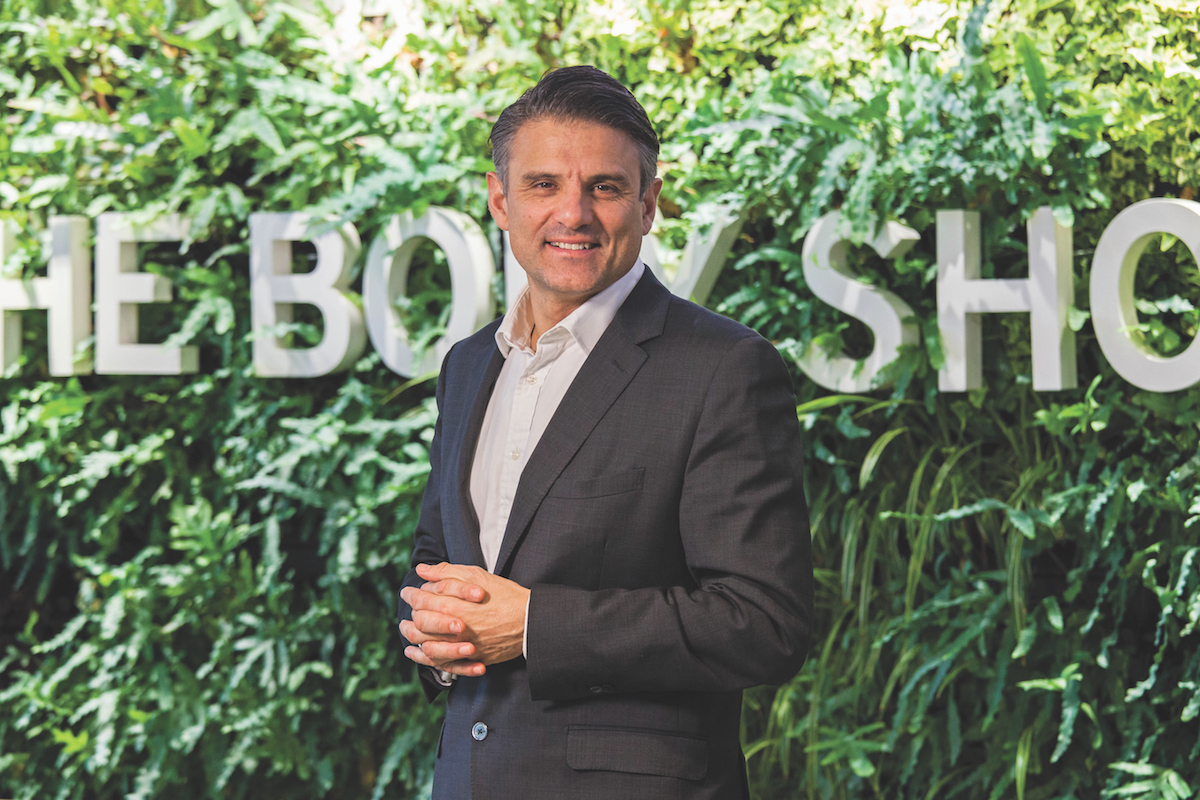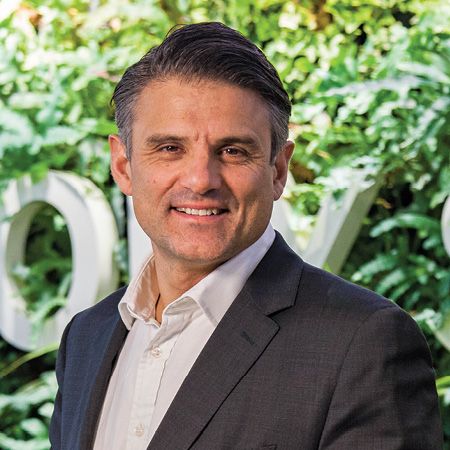While Jeremy Schwartz may not have smeared mud over himself, or rigorously demonstrated against multinationals, he has gone looking for nuts in Brazil. As the chairman and CEO of The Body Shop lay huddled in a tiny canoe smack bang in the middle of the dense Amazon jungle, his thoughts must have wandered back to the antics of his principled predecessor, Dame Anita Roddick. Tough footsteps to follow, but surely bobbing up and down along the Amazon River was a good start. “I was looking for new ingredients for our products,” he explains. “We did find a nut that had never been talked about, or related in any way to cosmetics. We’ve studied its properties and the properties of others, and will be launching a product this year directly inspired by the ingredients found on that trip.”
Bio-Bridges
Although a little more refined than the notorious Dame, Jeremy lacks none of her conviction. His trip to the Amazon triggered 2 new environmental projects for The Body Shop, the first inspired by a story told to him by a local villager. “We were walking through this heavy Amazon jungle when he turned around and told us that everything we could see, all the forest, didn’t exist years before,” Jeremy says. “It had been destroyed by local villagers cutting it down to sell the wood.

Sure, they were making a nice income and were very proud of themselves, until they came to the edge of the forest and realised there was no more wood to be had. Naturally, that meant no more income. They had to allow the wood to regrow and learn to regenerate.”
Massively impacted by the story, Jeremy returned to the UK determined to help local communities live more sustainably by regenerating damaged forests around the world and also create corridors of natural habitat to prevent threatened wildlife populations being cut off from each other. The Body Shop launched its Bio-Bridges with World Land Trust last year, starting with 14.5 million square metres in central Vietnam, and aiming to restore and protect 75 million square metres worldwide.
Enrich Not Exploit
Jeremy was standing on the side of the Amazon River wondering how he could sum up his Amazon experience from a company point of view when he had his second epiphany: enrich, not exploit. “These 3 words flashed into my head,” he remembers. “Our products enrich, they’re good for the skin, but we don’t exploit our suppliers, our farmers or our customers. We will never model incredibly thin women — we show real women, not airbrushed. We don’t test on animals; more than 60% of our products are vegan, in fact. We don’t exploit.”

The Body Shop is the most ethical and sustainable global company worldwide, and we want to help this plant flourish. That’s a big, rather hairy, rather bold statement for a relatively small company like ours to make – Jeremy Schwartz
‘Enrich Not Exploit’ became the company’s manifesto, a re-energised statement for The Body Shop and one that Jeremy challenges other companies to make. “The Body Shop’s aim is to be the most ethical and truly sustainable global company, and we want to help this planet flourish. That’s a big, rather hairy, rather bold statement for a relatively small company like ours to make. And it’s not something many companies would dare make public. Enrich not exploit? They wouldn’t write the word ‘exploit’ because they fear it implies they perhaps are exploiting.
“I wanted to create a new campaign that perhaps might be laughed at now, but in 20 years time people will remember there was a guy who was trying to do something everyone thought was wacky but has become mainstream. Just like they laughed at Anita when she campaigned against animal testing.”
The Body Shop vision
The Body Shop has 3,000 stores in 66 countries — 1,112 staffed by company employees and 1,942 run by franchisees. Although the product is increasingly popular among men, women remain its core customer.
“Women who engage with us are smart, ethically concerned, and digitally savvy, and we see this type of woman everywhere in the world, no matter their language or culture,” he says. “Also, people I speak to in developing countries are far more concerned about the environmental changes to the world than the people in the West. Business people in suits in the West probably don’t go home to a farm at night, whereas those in Sao Paulo, Shanghai or Taiwan are first-generation business people returning home to their families living on the farm, experiencing firsthand environmental changes.
“We work very closely with our suppliers, understanding their culture and context in depth as a basis for a responsible and mutually profitable relationship. That’s The Body Shop vision.”

